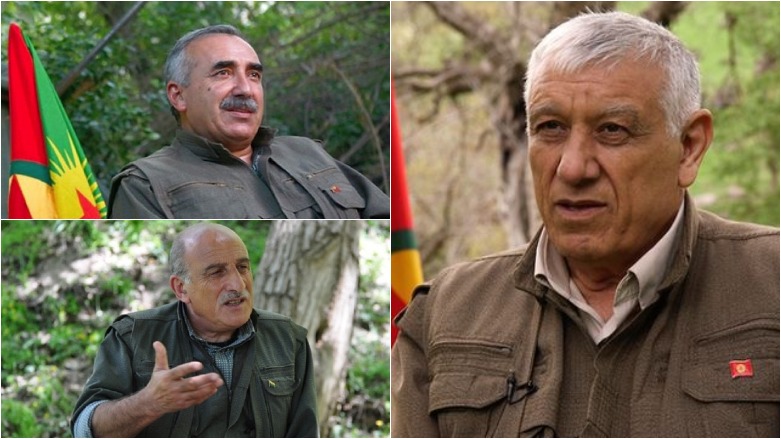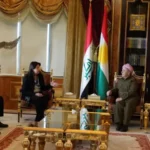Turkey’s Kurdish issue remains one of the most enduring and polarizing disputes in the region, shaped by a long history of political tensions, cultural marginalization, and periodic outbreaks of armed violence. The latest developments in this ongoing saga point to a nuanced interplay between the Turkish government—now promoting a renewed “Kurdish opening”—and the Kurdistan Workers’ Party (PKK), whose leadership continues to display divergent strategic impulses. While the PKK’s internal dynamics have visibly shifted following a letter from its imprisoned founder Abdullah Öcalan, Turkey’s governing alliance under President Recep Tayyip Erdoğan is also sending mixed signals domestically, reflecting a carefully calibrated strategy designed to satisfy both nationalist constituencies and the United States.
A Letter from Öcalan and the PKK’s About-Face
The PKK’s recent shift in rhetoric appears to have been precipitated by a letter from Abdullah Öcalan, who, despite more than two decades of incarceration, retains considerable symbolic authority within the organization. Cemil Bayık, Co-Chair of the KCK Executive Council, recently acknowledged having received a message from Öcalan—a development that reversed the PKK’s previously skeptical stance toward any renewed peace process or disarmament. Only a short time earlier, Bayık and other senior PKK figures such as Murat Karayılan and Duran Kalkan had insisted that the Turkish government halt its military operations before the PKK would consider a ceasefire. Bayık, in particular, had emphasized the PKK’s autonomy from Öcalan’s directives, highlighting an internal power dynamic between the Kandil-based leadership and the imprisoned founder.
Once Öcalan’s letter arrived, however, the tone changed markedly. Bayık abruptly reoriented toward praising Öcalan’s leadership and accepting his guidance. The absence of any explicit reservations suggests that Öcalan’s letter carried a clear and forceful call for conciliation—one that the Kandil leadership deemed necessary to follow. This sudden realignment exposes the PKK’s internal contradictions but also underscores Öcalan’s capacity to influence the group from his prison cell. The PKK’s newfound openness to discussions with the Turkish state thus appears more a response to Öcalan’s directives than an organically evolved change of heart.
Turkey’s Mixed Signals: Nationalist Constraints and Pragmatic Engagement
While the PKK is adjusting its stance, the Turkish government itself has been sending conflicting messages. Recent symbolic gestures—such as the unexpected handshake between Devlet Bahçeli, leader of the Nationalist Movement Party (MHP), and deputies of the pro-Kurdish Peoples’ Equality and Democracy (DEM) Party during the October 1, 2024, opening of Parliament—have drawn widespread attention. Bahçeli’s gesture, unthinkable just a few years ago, was portrayed as a display of “brotherhood.” Yet this does not necessarily signify a policy shift on the part of the ruling AKP-MHP coalition. Indeed, officials close to President Erdoğan, including advisor Mehmet Uçum, have repeatedly dismissed the idea of resuming the 2013–2015 peace process, aiming to reassure nationalist voters that the government’s commitment to combating terrorism remains uncompromised.
Erdoğan’s tightrope act lies in preserving his alliance with Bahçeli’s nationalist base—which demands a firm stance against the PKK—while appearing amenable to dialogue that might facilitate broader domestic and international objectives. This balancing effort reflects the Turkish government’s drive to address domestic pressures without sacrificing the support of hardline constituencies. Although it may project an image of reconciliation through gestures like Bahçeli’s handshake, Ankara still eschews major concessions, thereby maintaining its credibility among nationalists wary of any perceived appeasement of Kurdish ambitions.
U.S. Influence: Setting the Stage for a New Peace Process?
An additional layer to these developments stems from Washington’s engagement in the region. The United States wields considerable sway over Kurdish forces in Syria, particularly the Syrian Democratic Forces (SDF), which share ties—whether ideological or organizational—with the PKK. Turkish officials believe that, given the right circumstances, U.S. pressure could induce the PKK to disarm in exchange for concessions related to Kurdish autonomy in Syria. The underlying assumption is that America’s broader strategic goals—securing stability in the Middle East, countering adversarial influences, and maintaining Turkey’s role as a buffer between Europe and the region—complement Ankara’s desire to resolve the Kurdish conflict on terms favorable to the Turkish state.
From Ankara’s perspective, this alignment of interests could pave the way for a peace plan that ensures Turkey’s unity and quells the PKK’s armed struggle. The release of Öcalan—alongside other significant detainees like Selahattin Demirtaş—remains a potential bargaining chip, though high-level Turkish officials remain cautious about broaching such a sensitive matter publicly. In the meantime, gestures of accommodation, including discussions about cultural and political rights for Kurds, serve to hint at possible outcomes without committing to federalist arrangements that might alarm nationalists.
Strategic Repositioning and Internal Calculations
The PKK’s revised stance can also be interpreted through the lens of tactical pragmatism. Turkey may be approaching a critical electoral juncture, with the Kurdish question once more rising to prominence. An open rift between Öcalan loyalists and the PKK’s field commanders could weaken the movement’s internal cohesion and public appeal, prompting a display of unity behind Öcalan’s instructions. This pragmatic calculation is consistent with the PKK’s history of sudden strategic pivots, where rhetorical reversals have functioned as a way to reposition the group amid shifting domestic and international currents.
Yet deep skepticism persists regarding whether these conciliatory overtures signify a genuine transformation. Critics suggest that the PKK might be attempting to manage public perception and external pressures, rather than genuinely renouncing armed tactics. The ultimate test lies in whether it commits to steps such as ceasing violent operations and engaging in structured negotiations. On the Turkish side, enduring mistrust and nationalist sensitivities within the ruling coalition present additional barriers to any concessions that might be viewed as capitulating to PKK demands.
Toward a Durable Solution or Another Transient Phase?t.
For now, the PKK’s sudden pivot underscores both Öcalan’s persistent sway over the organization and the group’s cognizance of geopolitical undercurrents. If Turkey’s domestic realignments and the United States’ regional leverage intersect in a constructive manner, there could be room for a more enduring peace initiative. Still, the road ahead is fraught with uncertainty. Without credible demonstrations of de-escalation on the PKK side and tangible policy shifts from the Turkish government, this phase of seeming conciliation might ultimately prove ephemeral. It risks joining a series of aborted peace efforts that have defined—and at times exacerbated—one of Turkey’s most intractable conflicts.
In essence, Turkey’s renewed “Kurdish opening” reflects a delicate dance between nationalist expectations, U.S. strategic interests, and the PKK’s capacity for abrupt repositioning. The PKK’s latest move, precipitated by Öcalan’s letter, illustrates the organization’s enduring internal fault lines even as it highlights the founder’s ideological force. Whether these overtures can be molded into a genuine peace framework hinges on both sides’ willingness to move beyond symbolism—an outcome that remains far from certain as Turkey navigates an ever-evolving political and geopolitical landscape.
By: News About Turkey (NAT)



